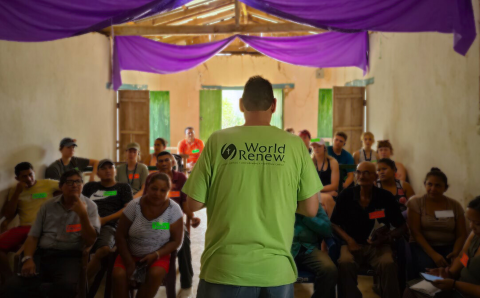I have been thinking a lot recently about Jonathan Haidt’s book, The Righteous Mind: Why Good People are Divided by Politics and Religion (2012). Although I don’t agree with everything in his book, I do think there is a lot of truth in the moral psychologist’s central metaphor about the human mind: “the mind is divided, like a rider on an elephant, and the rider’s job is to serve the elephant” (p. 12). The rider, in this metaphor, is our conscious reasoning while the elephant is “the other 99 percent of mental processes—the ones that occur outside of awareness but that actually govern most of our behavior” (p. 12). We often think our riders, our conscious reasoning, are in control, but really our elephants, our subconscious intuitions, rule. The elephants go where they want to go, and the riders only pretend to be in control by intellectually justifying the elephants’ choices.
This is true even of our moral and theological positions. Our minds’ elephants create biases in us to favor some biblical themes or truths over others. Intuitively, some biblical passages are “more clear” or “more authoritative” to us than others. Then our rational riders get busy intellectually justifying our choices as “right.” However, we often delude ourselves that we arrived at our theological convictions solely on objective impassioned reasoning from Scripture. All of this happens subconsciously. Those of us who have similar elephants—similar intuitive biases—will tend to land on similar positions, e.g. conservative/progressive elephants land on conservative/progressive positions.
A big part of the problem in our disagreements, then, is that we only argue with our rational riders but ignore the role of our elephants, the ones that are really making the choices. So we often end up stuck in intractable conflict, seeing each other as either idiots or hypocrites who can’t or won’t see the truth.
I think we all—across the theological spectrum—need to humble ourselves and recognize that none of us are without biased elephants influencing, even deciding, our biblical understanding and convictions.
How are our elephants formed or deformed? Here, I will riff from Christian philosopher James K.A. Smith’s book, You Are What You Love: The Spiritual Power of Habit. Smith’s main point is that we are what we love. What we love, then, shapes our subconscious elephants’ choices, and our rational riders then find arguments to support those choices. The sobering caution is that what our riders say we love—e.g. God or Jesus—might not actually be what we love. Experience, especially repeated habitual experiences, shape what we love, not reason. Hence, Smith argues, Christian discipleship must do more than simply download spiritual information to people. Discipleship must include long-term spiritual habits, especially through a church community, to reshape our hearts’ ultimate love toward God, so that the fruit of the Spirit (Gal. 5:22-23) becomes second nature to us. When the fruit of the Spirit is our second nature, our elephants, so to speak, will be biased toward Christ-likeness and Christ-like choices. For example, kind people often do not stop and consciously choose to be kind at every turn. Rather, kind people are habitually kind; kindness is second nature to them.
All of this is to say there are no quick fixes for our polarized dilemmas. Our moral and theological polarization is not only due to reasoning differently but also powerfully driven by subconscious moral and spiritual intuitions shaped by lifelong habits. Can we, therefore, be more gracious and patient with those who have different convictions than us?
About the Author
Shiao Chong is the former editor-in-chief of The Banner. He served as editor from 2016 to 2025. He attends Fellowship Christian Reformed Church in Toronto, Ont.
Shiao Chong es el redactor jefe de The Banner. El asiste a Iglesia Comunidad Cristiana Reformada en Toronto, Ont.
시아오 총은 더 배너 (The Banner)의 편집장이다. 온타리오 주 토론토의 펠로우쉽 CRC에 출석한다.
You can follow him @shiaochong (Twitter) and @3dchristianity (Facebook).









